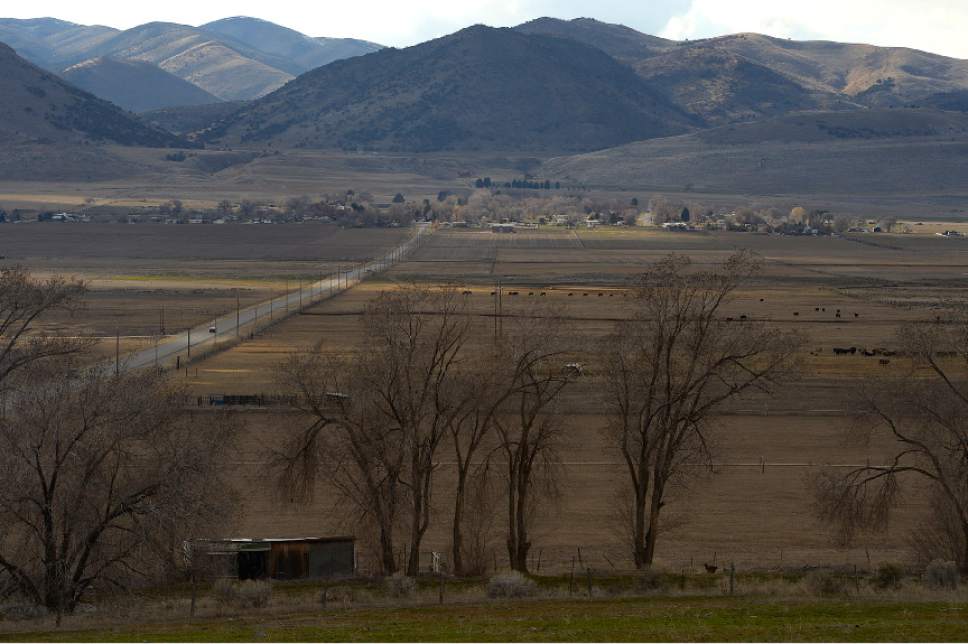This is an archived article that was published on sltrib.com in 2017, and information in the article may be outdated. It is provided only for personal research purposes and may not be reprinted.
State managers say new projections on water demand suggest it may be possible to delay the construction of the Bear River Development Project.
New, lower estimates of Utah's future population, improved technology and better results on water conservation all make it likely the state can postpone the project's start date, said Todd Adams, deputy director of the Utah Division of Water Resources (DWR).
Originally, Adams said, the DWR planned to begin work on the Bear River Project in 2015 in order to have the series of dams and reservoirs along the Bear River in northern Utah ready to begin delivering water in between 2035 and 2040.
But that timetable may no longer be necessary, he said. According to a policy brief from the University of Utah's Kem C. Gardner Policy Institute, new projections put Utah's population in 2065 in the range of 5.5 million. Previous estimates had Utah's population hitting 6 million by 2060.
The population estimates are still in draft form, Adams said, and so the DWR will await final estimates before determining any actual delay of the roughly $1.5 billion project. A U. demographer confirmed the projections would be released in July.
At the same time, much of Utah is close to meeting current conservation goals, said Adams, sparking discussions of new goals. And new technologies such as smart timers for automated sprinkling systems are also on course to drive down water consumption.
Zach Frankel, executive director of the Utah Rivers Council, said Utah could eliminate the need for the Bear River project if it took conservation as seriously as it does water development.
"They are spending four times as much each year on Bear River Development as they are on water conservation," Frankel said.
The Bear River Project is unpopular with many environmentally-minded activists and other groups. They fear the project, which would store up water that would otherwise flow into the Great Salt Lake, would cause the lake to further recede.
Further declines in lake levels could also prove detrimental to other aspects of life on the Wasatch Front, they warn — air quality, for example, could suffer if winds kick up dust from the dry lake bed.
Frankel said the current legislative session, which began Monday, will include discussion of a bill intended to divert millions of dollars to fund the Bear River project. But thus far, he said, his requests to view documents related to the legislation have been blocked.
Twitter: @EmaPen



